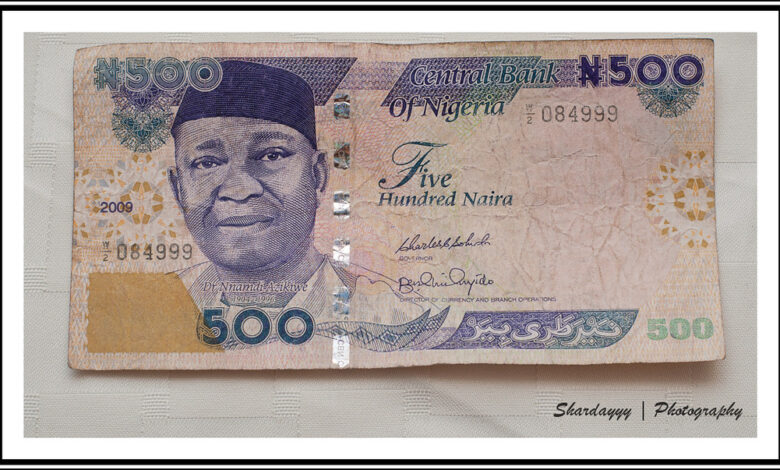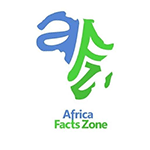Naira Declared Worst-Performing Currency Globally in First Half of 2024

The naira ended the first half of 2024 as the world’s worst-performing currency, facing a steep devaluation, insufficient dollar liquidity, and market volatility that undermined efforts to stabilize its value.
According to a Bloomberg report released on Friday, June 28, 2024, the naira’s performance highlights the economic challenges facing Nigeria.
Overview of Naira’s Performance
A Steep Decline
The naira weakened by 0.2% to 1,510 per dollar by the close on Thursday, according to FMDQ data. This losing streak is the longest since July 2017, bringing the decline since the start of the year to 40%.
The naira’s performance is the worst among global currencies tracked by Bloomberg, besides the Lebanese pound, which is undergoing an economic crisis and witnessing dollarization.
Comparison with Other Currencies
Other currencies that recorded poor performances in the first six months of the year, besides the naira, include Egypt’s pound and Ghana’s cedi. However, the naira’s steep decline has drawn particular attention due to the significant economic implications for Nigeria.
Factors Contributing to Naira’s Poor Performance
Undervaluation and Dollar Supply Issues
Samir Gadio, head of Africa strategy at Standard Chartered Bank Plc in London, stated that while the naira is undervalued and has seen significant adjustment, the supply of dollars needs to improve for the currency to be supported. “Portfolio inflows have yet to pick up, even amid still-attractive local rates,” Gadio noted.
Foreign Exchange Scarcity
Nigeria has faced years of acute foreign exchange scarcity and instability due to lower crude production and a lack of economic diversification.
Since June 2023, when President Bola Tinubu’s government introduced policy changes to attract inflows and revive the economy, the local unit has lost about 70% of its value against the dollar.
Volatility in Demand and Supply
The currency experienced volatility between mid-April and May due to the imbalance between demand and supply for the greenback. However, the swings moderated in June with an improvement in dollar inflows.
Ranking: Top 10 African Nations with Strongest Currencies
Efforts to Stabilize the Naira
Central Bank Interventions
Nigerian Central Bank Governor Olayemi Cardoso stated that the lender believes the currency’s volatility may be a thing of the past and is committed to promoting investor confidence.
Since assuming office in September 2023, he has increased interest rates by 750 basis points to 26.25%, cleared a foreign exchange backlog, and negotiated multilateral dollar inflows to help stabilize the currency.
Policy Changes
The Nigerian government has implemented several policy changes to stabilize the naira and attract foreign investment. These efforts include adjusting exchange rates, increasing transparency in foreign exchange transactions, and encouraging export diversification.
Economic Impact of Naira’s Decline
Inflation and Cost of Living
The steep devaluation of the naira has led to significant inflation, driving up the cost of living for Nigerians. Imported goods have become more expensive, and the cost of essential commodities has risen, placing additional strain on households.
Impact on Businesses
Businesses operating in Nigeria have also felt the impact of the naira’s decline. Companies that rely on imported materials or equipment have faced higher costs, affecting their profitability and operations.
The instability of the naira has made it challenging for businesses to plan and budget effectively.
Investor Confidence
The naira’s poor performance has also affected investor confidence. Potential investors may be hesitant to invest in Nigeria due to concerns about currency instability and the associated risks.
This lack of confidence can further hinder economic growth and development.
Also Read: Ranking: 10 African Nations with the Most Weakest Currencies
Future Outlook for the Naira
Potential for Stabilization
Despite the current challenges, there is potential for the naira to stabilize in the future. Continued efforts by the Central Bank of Nigeria and the government to improve dollar liquidity, attract foreign investment, and diversify the economy could help support the currency.
Importance of Economic Diversification
One of the key factors in stabilizing the naira will be the diversification of Nigeria’s economy. Reducing reliance on oil exports and developing other sectors such as agriculture, manufacturing, and technology can create more stable sources of revenue and reduce the impact of global oil price fluctuations on the naira.
Encouraging Foreign Investment
Attracting foreign investment will be crucial for the long-term stability of the naira. By creating a more investor-friendly environment and addressing concerns about currency stability, Nigeria can encourage more portfolio inflows and foreign direct investment.
Conclusion
The naira’s status as the world’s worst-performing currency in the first half of 2024 highlights the significant economic challenges facing Nigeria. Factors such as undervaluation, foreign exchange scarcity, and market volatility have contributed to the currency’s decline. However, with continued efforts to stabilize the naira, attract foreign investment, and diversify the economy, there is potential for improvement in the future.
For more detailed information, you can refer to the Bloomberg report.
FAQs
1. Why did the naira become the world’s worst-performing currency in 2024?
- The naira’s decline was due to a combination of steep devaluation, insufficient dollar liquidity, and market volatility.
2. What other currencies performed poorly in the first half of 2024?
- Other poorly performing currencies included Egypt’s pound and Ghana’s cedi.
3. How has the devaluation of the naira affected the cost of living in Nigeria?
- The devaluation has led to significant inflation, driving up the cost of imported goods and essential commodities.
4. What steps has the Central Bank of Nigeria taken to stabilize the naira?
- The Central Bank increased interest rates, cleared a foreign exchange backlog, and negotiated multilateral dollar inflows.
5. How can Nigeria improve investor confidence in the naira?
- By improving dollar liquidity, increasing transparency, and encouraging economic diversification, Nigeria can enhance investor confidence.
6. What role does economic diversification play in stabilizing the naira?
- Economic diversification can reduce reliance on oil exports, create stable revenue sources, and mitigate the impact of global oil price fluctuations.
7. What is the future outlook for the naira?
- While challenges remain, continued efforts to stabilize the naira, attract foreign investment, and diversify the economy offer potential for future improvement.





